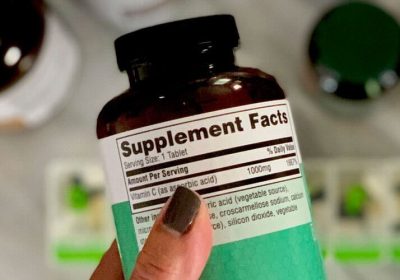On Wednesday, we witnessed a faceless FDA committee preempted a ban on yet another group of compounded peptides, including the immune modulating, anti-cancer peptide thymosin alpha-1. The FDA’s unjustified decision threatens patients, families, and the promise of personalized medicine. We must act now to protect access to these life-changing treatments. Action Alert!
Listen to the audio version of this article:
THE TOPLINE
- On December 4, 2024, the FDA’s Pharmacy Compounding Advisory Committee rejected several important peptide therapies for compounding, citing theoretical safety concerns without evidence of harm.
- Compounding advocates were given minimal time to address complex scientific issues, while the FDA dominated the meeting, steering the outcome toward banning these critical treatments.
- The FDA’s actions threaten patient access to personalized, life-saving medicines; we must fight for the future of natural and compounded healthcare.
Imagine watching your loved ones suffer, knowing there are treatments that could ease their pain, improve their health, or even save their lives—only to see those options taken away by a system that prioritizes corporate interests over patient well-being. On December 4, 2024, we witnessed the FDA and its Pharmacy Compounding Advisory Committee (PCAC) deal a crushing blow to patients who depend on personalized medicine by rejecting several groundbreaking peptide therapies, including Thymosin alpha-1 (Ta1), AOD-9604, and CJC-1295, produced by compounding pharmacies.
For patients, families, and practitioners who rely on compounding for customized treatments, this decision is a massive gut-punch. It’s the FDA saying, “We know better than your doctor.” This cannot stand. Help us stand up for the hundreds of thousands of patients who rely on these medicines for their health.
A Rigged Process?
Wednesday’s meeting underscored what we’ve long argued: the FDA’s process appears fundamentally rigged against compounded medicines. Similarly to the October PCAC meeting, FDA staff methodically presented their evaluations for each peptide, dominating the discussion—the evaluation of Ta1 alone consumed nearly three hours. In stark contrast, representatives of the compounding industry were given about 15 minutes to present their case for each peptide. This gross imbalance made it nearly impossible for them to address the complex scientific issues surrounding safety, efficacy, and chemical composition.
To be clear, PCAC’s vote is a recommendation. The FDA must go through the formal rulemaking process to ban these substances from compounding. But, seeing as the FDA recommended that each of these peptides be banned, it’s clear that the agency will try to ban these compounds. That’s why we need a strong, unified voice opposing these actions.
Safety vs. Lack of Evidence
As we’ve seen before, the FDA based its decisions on theoretical safety concerns rather than evidence of harm. For example, the agency flagged peptides for their “potential immunogenicity” (the possibility of causing immune responses), citing the theoretical risk of impurities in bulk ingredients used for compounding. Peptides represent a huge group of compounds, including most hormones, and some of the modified peptides that Big Pharma is developing are indeed highly immunogenic and harmful. Yet the FDA’s own reviews couldn’t help but show that peptides like Ta1 have a strong safety profile, with 40 plus years of safe us under their belt, as well as real potential in treating immunodeficiency and fighting cancer.
Consider this statement from the FDA’s own review of Ta1: “In most clinical studies, Ta1 has not been associated with significant adverse events attributable to Ta1 when administered in doses in the range of 1-16mg via the subcutaneous route of administration for up to 12 months.”

The primary adverse effects noted were mild—local irritation or discomfort at the injection site. If Ta1 is safe, why interfere with the practice of medicine by removing this tool from the kit?
When pressed by PCAC members on the question of immunogenicity and what kinds of adverse events it can lead to other than anaphylaxis, FDA presenters lacked any hard evidence of harm. All they could come up with was hypothetical conjecture about the possibility of peptides with impurities altering the function of existing proteins and leading to deficiency syndromes.
Nor does the FDA have good answers for why, if impurities are a concern, it won’t simply issue guidance on how compounders could run quality control checks on bulk drug ingredients to ensure purity. This is yet another indication that the FDA isn’t really interested in advancing safe compounded medicines: it just wants to ban them based on theoretical concerns about purity.
Thymosin Alpha-1: A Victim of FDA Overreach
Thymosin alpha-1, or Ta1, discovered in 1961, is a naturally occurring peptide with extraordinary potential. It boosts T-cell production and enhances natural killer (NK) cell function, vital for fighting infections and cancer. It has been approved in over 30 countries as an injectable drug for chronic hepatitis B and C and as an orphan drug for cancer treatment.
The implications of banning Ta1 are dire. As we age, declining thymus function contributes to the prevalence of cancer and weakened immunity. Ta1 has been shown to counteract this decline. The existence of dozens of clinical trials suggest it could be a critical tool for treating early-stage cancers, enhancing immune function, and even extending lifespan.
A Broader War on Natural Medicine
The ban on peptides is part of the FDA’s ongoing campaign against compounding pharmacies, which provide customized medicines for patients with unique needs. These pharmacies have been a lifeline for patients requiring bioidentical hormones, alternative dosage forms, and other specialized treatments.

We believe the FDA’s ultimate goal is to reserve peptides and other bioidentical medicines for exclusive use by pharmaceutical companies, shutting down competition from compounders. This mirrors the agency’s broader hostility toward natural medicines, from bioidentical hormones to homeopathy and dietary supplements.
We know the drug industry is watching—and we also know the days under which compounding is under relentless attack may be numbered given the changes in medical culture that will accompany the incoming Administration. That won’t stop Big Pharma from doing what it can to shut down competition. For example, during the open comment session on AOD-9604, a peptide that was nominated for inclusion on the Bulk Drug List to address weight loss, a representative from drug giant Eli Lilly voiced opposition to its inclusion. Why? How about the fact that Eli Lilly has its own peptide drug in development targeting weight loss. It is almost a certainty that this same dynamic is at play for the other peptides in question.
Take Action!
The science behind peptides is too promising for them to be monopolized by the pharmaceutical industry. This latest FDA committee decision threatens to stifle innovation and deny patients access to life-changing treatments. Together, we can fight back against these unjust policies and defend our right to safe, natural, and effective medicines.
Action Alert! Write to the FDA, PCAC, and Congress, urging continued access to compounded medicines. Please send your message immediately.




Could Bobby Kennedy help with this in a few weeks?
We’re putting in front of Bobby and he’s deeply concerned based on public comments he’s made!